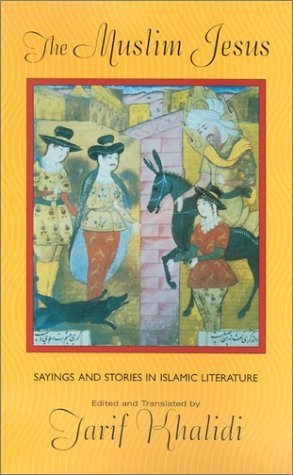Pynthanomai
Active member
- Messages
- 45
- Reaction score
- 3
Hello all,
Firstly, let me apologise if I have posted this in the incorrect thread/topic or if it's already been answered elsewhere. There are so many postings to read through, and I don't really have much free time to contribute! I hope you'll all bear with me.
I am a Christian, and I have had several discussions over a period of several months with a Muslim colleague of mine about Islam. Initially, I had many prejudices about and biases against Islam and what it taught, but many of these have been overturned as a result of what my colleague has taught me, as well as from my reading of the information he's given me about Islam. Our discussions have covered a range of topics, from things such as the "basics" of Islam to aspects of Christianity such as the divinity of Jesus, and even political issues that relate to Islam. Of course we haven't agreed upon everything, but my respect for Islam has grown. My colleague can certainly take much of the credit for that, since his lifestyle very clearly reflects his beliefs.
However, I would like to be bold and offer a matter for inquiry that concerns Muslims, inasmuch as they are the “targets” of another type of discourse: that of works or publications that denigrate, insult or otherwise verbally attack Muslims and Islam. A particular case was brought to my attention in the following e-book that was recently published: http://www.lulu.com/content/962904 (the link goes to an online bookseller’s site). The book is called “Hatred of the Angels” and is a fictional story about a dystopic future Europe where Islam and Muslims hold some sort of socio-political dominance. The blurb that comes with it clearly shows that it’s defamatory.
My colleague and I were discussing the best way to address this sort of thing. He believed that there was little value to be gained by attempting to have dialogue or discussion with people who have ingrained prejudices, in that such people are very unlikely to attempt to listen to another person’s point of view. This book, he felt, was a case in point. For myself, I tend to think that engaging in some sort of response or rebuttal to these sorts of publications can be very useful, since correcting misinformation about one’s religion can influence others’ perceptions of it for the better. In this case, I believe the author has probably extrapolated upon several commonly-held prejudices against Islam that are prevalent today to produce his story. Wouldn’t a strong, positive reply to such a work – which, perhaps, might attain some sort of readership or popularity (you can never tell sometimes) – be a valuable aid to both Muslims and non-Muslims?
I’m really interested to hear what other Muslims think about this topic (my colleague suggested that I post a message to this forum for this very reason).
Finally, thanks for your time! (And I also apologise if I’m slow in replying.)
(And I also apologise if I’m slow in replying.)
Firstly, let me apologise if I have posted this in the incorrect thread/topic or if it's already been answered elsewhere. There are so many postings to read through, and I don't really have much free time to contribute! I hope you'll all bear with me.
I am a Christian, and I have had several discussions over a period of several months with a Muslim colleague of mine about Islam. Initially, I had many prejudices about and biases against Islam and what it taught, but many of these have been overturned as a result of what my colleague has taught me, as well as from my reading of the information he's given me about Islam. Our discussions have covered a range of topics, from things such as the "basics" of Islam to aspects of Christianity such as the divinity of Jesus, and even political issues that relate to Islam. Of course we haven't agreed upon everything, but my respect for Islam has grown. My colleague can certainly take much of the credit for that, since his lifestyle very clearly reflects his beliefs.
However, I would like to be bold and offer a matter for inquiry that concerns Muslims, inasmuch as they are the “targets” of another type of discourse: that of works or publications that denigrate, insult or otherwise verbally attack Muslims and Islam. A particular case was brought to my attention in the following e-book that was recently published: http://www.lulu.com/content/962904 (the link goes to an online bookseller’s site). The book is called “Hatred of the Angels” and is a fictional story about a dystopic future Europe where Islam and Muslims hold some sort of socio-political dominance. The blurb that comes with it clearly shows that it’s defamatory.
My colleague and I were discussing the best way to address this sort of thing. He believed that there was little value to be gained by attempting to have dialogue or discussion with people who have ingrained prejudices, in that such people are very unlikely to attempt to listen to another person’s point of view. This book, he felt, was a case in point. For myself, I tend to think that engaging in some sort of response or rebuttal to these sorts of publications can be very useful, since correcting misinformation about one’s religion can influence others’ perceptions of it for the better. In this case, I believe the author has probably extrapolated upon several commonly-held prejudices against Islam that are prevalent today to produce his story. Wouldn’t a strong, positive reply to such a work – which, perhaps, might attain some sort of readership or popularity (you can never tell sometimes) – be a valuable aid to both Muslims and non-Muslims?
I’m really interested to hear what other Muslims think about this topic (my colleague suggested that I post a message to this forum for this very reason).
Finally, thanks for your time!

